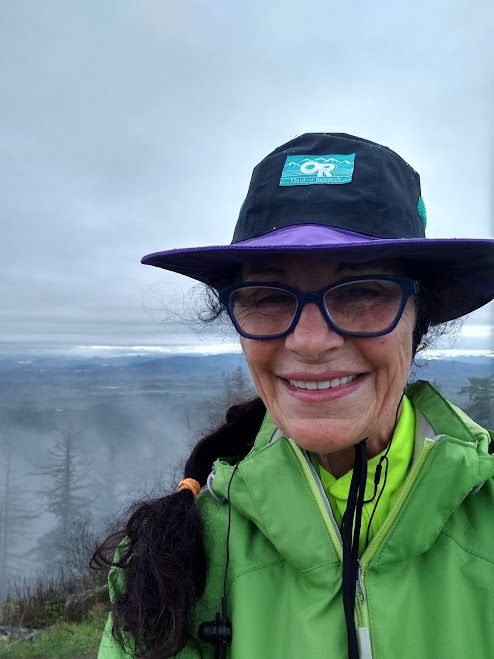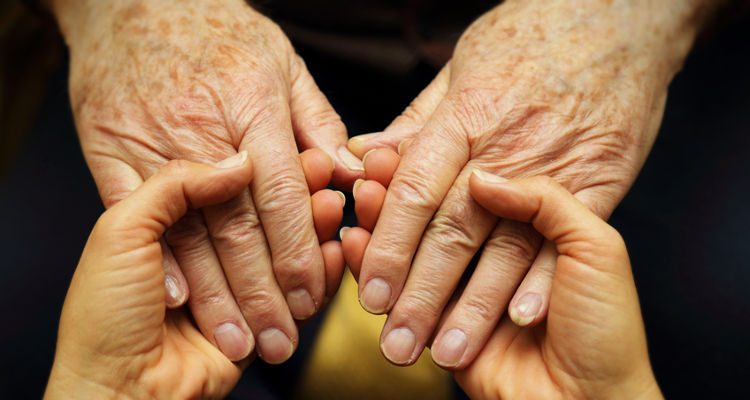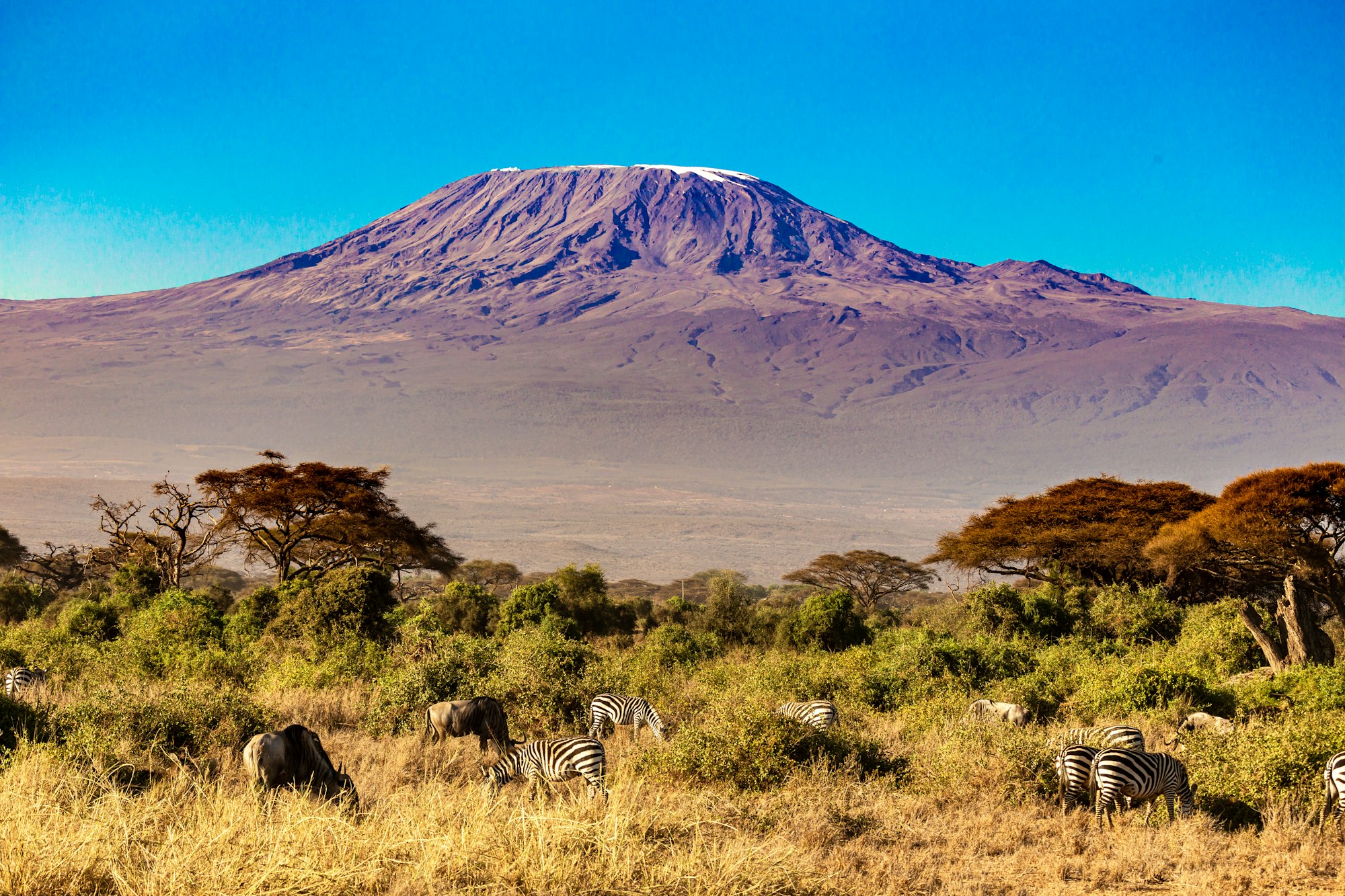
I'm about to have rotator cuff surgery, and I'm ready for it.
A little over two weeks ago I announced that I was going to attempt a second summit of Kilimanjaro in 2023. I committed to full-on training, even though my shoulder surgery was imminent. Tomorrow at noon, in fact.
This was fully intentional. I need Big Hairy Ass Goals to keep me motivated. And I also know that by being in a training mindset for Kilimanjaro as the much bigger goal, I will be even more motivated to heal, train through the pain, do the therapy and get my aging patootie back out on the mountain to run and hike.
Back in 2019, I hurt my shoulder on a fall on a mountain outside Lalibela, Ethiopia. Then last year I flipped my car outside Twin Falls, Idaho, and jammed that same shoulder. On top of that, add nearly fifty years of hard workouts, just sheer overuse. The rotator cuff, arthritis and a failing bicep tendon have just gotten too painful to deal with without surgical intervention. I have to tolerate down time to ensure that in the long run, as with my right shoulder, the short-term down time pays off with full strength and mobility.
A few things to know. First, I've been training for this surgery as soon as it was on the books. Any time you and I go under the knife, we need to train. That way we head into the operating theater in the best possible shape. The body is told in no uncertain terms we want it to succeed not only through this temporary trauma but also that we want it to heal in record time to get back to full health.
It works too, no matter how old we are.
Conventional wisdom says we heal more slowly as we age. Lots of reasons for that: when we allow our muscles to deteriorate through sarcopenia, we don't have the same muscle power to move the critical blood through our bodies which helps us heal. When we allow our cardiovascular system to deteriorate because we fail to do any workouts, the heart and lungs can't deliver the nutrients either. Our blood often isn't as well-oxygenated. Those two factors, both of which we have considerable control over, influence healing a great deal.
Another is nutrition. Obesity, as well as poor nutrition, both have huge effects on the body's ability to heal. A healthy amount of fat is critical to healing, but way too much impedes. It also makes surgery more difficult.
This is one way to better understand your aging body's ability to heal itself:

From that article:
The lack of physical activity among many older people also influences the healing process. A more sedentary lifestyle poses many health risks like back pain or obesity which may detriment the healing mechanism. Research shows that obesity does slow healing significantly because fatty tissue impairs blood flow to tissue. Fat also suppresses the production of certain cytokines that protect against inflammation. Lower oxygen flow and higher inflammation also make older people more susceptible to infection.
Many older people also suffer nutritional deficiencies which also interfere with healing. One of the most widespread problems in American society is that although many people eat high calorie foods, those foods come with remarkably few proteins, vitamins and minerals needed to maintain optimal healing. Others may maintain a proper diet but eat less than enough due to chronic pain, infirmity or mental impairment. Finally, older people are also more likely to develop digestive issues that reduce nutrient absorption; vitamin D and calcium absorption drops dramatically as you age, especially among women.
Diabetics also have lots more complications during and after surgery. That said, a diseased body in general struggles, and those of us with multiple lifestyle diseases are setting ourselves up for failure. Please see:
Exercise, strong muscles, proper nutrition. My dinner last night was a big crunchy salad with salmon, nuts, chia seeds, bright red peppers and a full-fat dressing. Dessert was a small bowlful of crisp green grapes and a half banana. I'm 5'8" and about 128 lbs, and around 15% body fat. That is one healthy body. It has taken years upon years to create that baseline and maintain it.
Post-surgically, heavy pain meds can cause constipation, which is very common in sedentary older folks whose fiber intake is too low. That creates all kinds of pain and discomfort on top of a body that's already traumatized. Proper fiber intake, which can easily be supported with pysllium husks, helps keep us regular, especially when we've insulted the body with drugs and anesthesia.
You can see this is no small undertaking. But going under the knife is a big deal, especially with an aging body.
So I don't just train regularly. I train for surgery. I ran three miles on steep hills last night and have been working my shoulders hard, until the pain got so bad I couldn't do it any more. The muscles are strong and lean. The surgery will hurt like a mofo. Rotator cuff is ugly. But I'll be working out soon afterwards, mostly leg and one-armed back work.
I plan to be up and working out right away. This article discusses why being in shape at my age, at nearly 69, I continue to push myself especially heading into anesthesia:

I've been working with a trainer to get those exercises down. I train for surgery the same way I train for a mountain climb. I train to succeed as best I can; however,the point is that any time we sit for endless hours and weeks, which too many of us have been doing, it can set us up for terrible issues later. From the article:
Lying in bed or sitting for long periods allows mucus to collect in the lungs. This puts you at risk of lung infections. This is especially true right after surgery or when you are ill.
And we wonder why Covid, which is a respiratory killer, scythes through us so easily. That's just part of why. We have to train to be in life, much less to age well, even more so to move successfully through surgery.
The last two weeks I have hit the trails harder, doubled my workouts on many days, and made sure that on six days each week I pushed hard. Even though my shoulder hurt too much to do full workouts, I've kept up with much of my weight work, pullups and pushups. The shoulder hurts enough to keep me up at night.
It's maintenance. You live long enough, there's a lot of that to be done to stay in the game in full.
So you train for your eighties and beyond, you train for being down, you train for whatever life throws at you.
My Lakeland, Florida Medium buddy Jay Geary, who in his early seventies is a personal trainer, told me that he's had his share of late-in-life physical challenges. Being fit prevents lifestyle diseases. It doesn't prevent the body's wearing down, wearing out or injuries, or what life throws at you in the bad luck lottery.
What Jay said, effectively, is what all my older fit friends say: being in this kind of shape makes being ill or injured an inconvenience rather than a death sentence. You and I are likely to be down for a while but being truly fit gives us far more than a fighting chance to bounce back up.
I have two days on my couch to deal with the worst of the pain, then I need to get moving as quickly as possible. That's the plan. We'll see what happens. As with all surgeries there are unpredictables. All I know is that I've trained for this, and I plan to be back out there hiking and working out by early to mid-December if not much sooner.
So tomorrow at twelve, I go under. A few hours later, I get back up, and start the healing process. With luck and hard work I'll have my arm strength and mobility back in about six months. Meantime, there's a mountain to train for, and time is a-wastin.'



Comments powered by Talkyard.